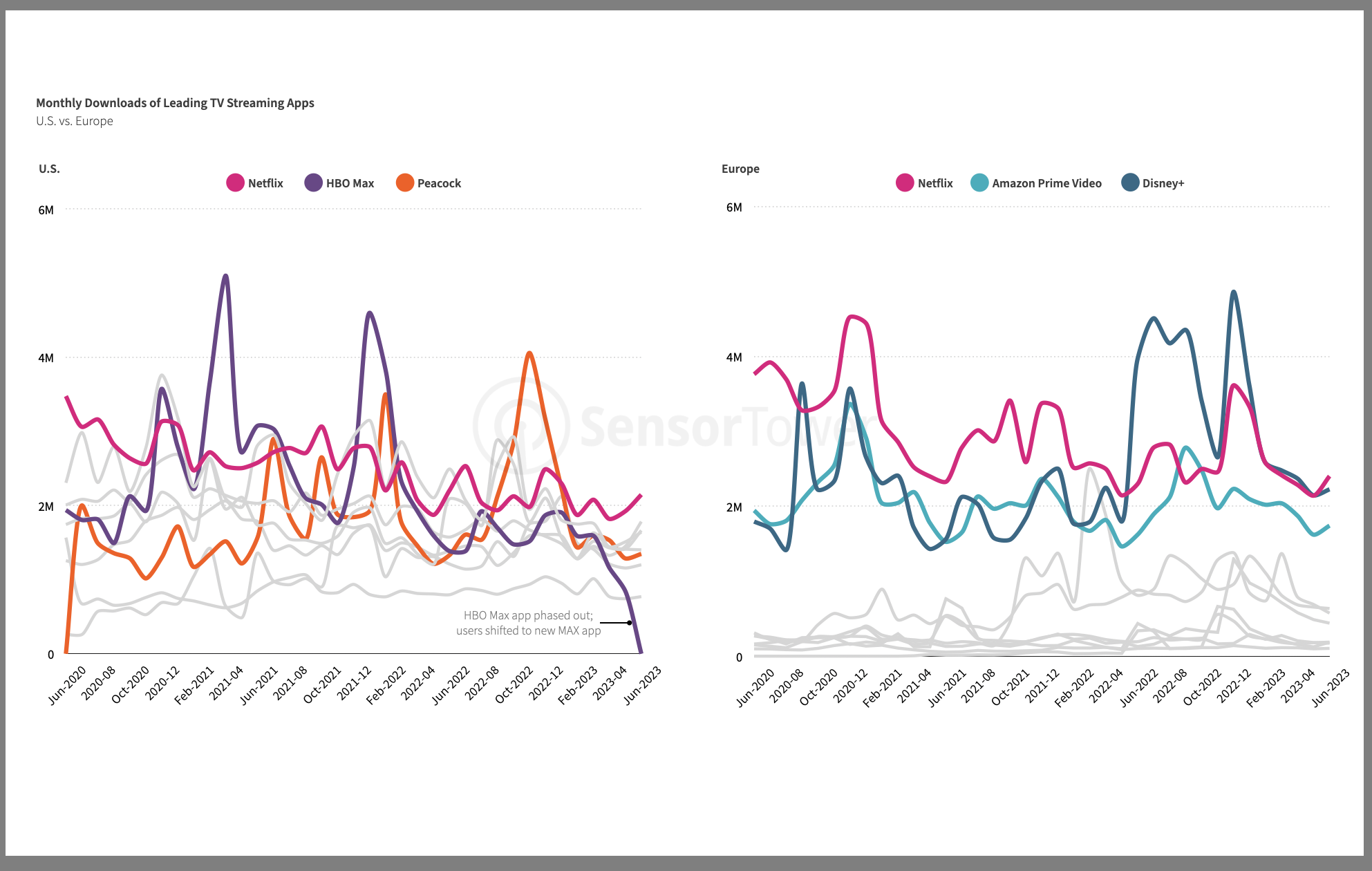Netflix was the first major streaming service to upend the paradigm that saw television as absolutely dominant. The streaming site spurred the creation of numerous other competitors, but in spite of the fact that this is the case, none of them have been able to come close in terms of users and popularity. Netflix’s recent decision to prevent people from sharing accounts and passwords was met with widespread condemnation, but it turned out to have a positive impact on the company’s numbers.
With all of that having been said and now out of the way, it is important to note that Netflix’s weekly active users increased by 1% around the world around five weeks after the new policy. This was even more drastic in the US, with weekly active users going up by 2.3% in that region. However, Europe didn’t give the company the success that it was looking for, with France showing a 3% decline and Germany and the UK showing no movement either way.
Despite all of this, Netflix has the most impressive retention rates for its users with all things having been considered and taken into account. 79% of Netflix users are retained, compared to 71% for HBO Max and Prime Video, 69% for Disney Plus and 65% for Hulu. Netflix is falling behind in terms of new users with just 3% compared to 8% for HBO Max and Disney Plus, and 7% for Prime and Hulu, but this doesn’t change that Netflix users tend to stick around longer.
One potential threat on the horizon for practically all of these streaming apps is the rise of new streaming platforms that are available free of charge. Platforms like Tubi, Freevee and Pluto TV are using ads to pay the bills, although their users aren’t quite as eager to sign on instead preferring paid apps for the most part.
It will be interesting to see where things go from here on out. These developments revealed just how consequential the decisions of streaming giants can be, since they can create ripple effects that can impact the entire industry.
H/T: Sensor Tower
Read next: Work anywhere, wander everywhere: The best remote jobs for digital nomads
With all of that having been said and now out of the way, it is important to note that Netflix’s weekly active users increased by 1% around the world around five weeks after the new policy. This was even more drastic in the US, with weekly active users going up by 2.3% in that region. However, Europe didn’t give the company the success that it was looking for, with France showing a 3% decline and Germany and the UK showing no movement either way.
Despite all of this, Netflix has the most impressive retention rates for its users with all things having been considered and taken into account. 79% of Netflix users are retained, compared to 71% for HBO Max and Prime Video, 69% for Disney Plus and 65% for Hulu. Netflix is falling behind in terms of new users with just 3% compared to 8% for HBO Max and Disney Plus, and 7% for Prime and Hulu, but this doesn’t change that Netflix users tend to stick around longer.
One potential threat on the horizon for practically all of these streaming apps is the rise of new streaming platforms that are available free of charge. Platforms like Tubi, Freevee and Pluto TV are using ads to pay the bills, although their users aren’t quite as eager to sign on instead preferring paid apps for the most part.
It will be interesting to see where things go from here on out. These developments revealed just how consequential the decisions of streaming giants can be, since they can create ripple effects that can impact the entire industry.
H/T: Sensor Tower
Read next: Work anywhere, wander everywhere: The best remote jobs for digital nomads


